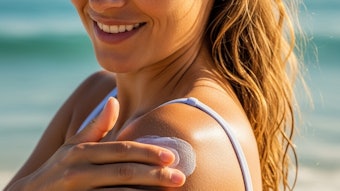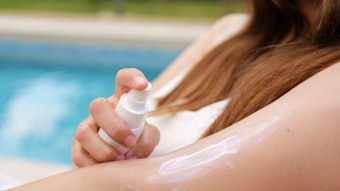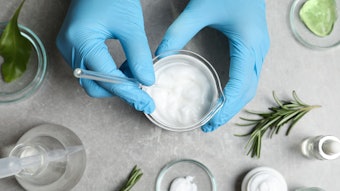Researchers at Fairleigh Dickinson University have found antimicrobial activity in chitosan nanoparticles (CNP) that may have application in wound healing. In their article, "Nanocomposite materials with antimicrobial activity based on chitosan," which was published in the International Journal of Nano and Biomaterials, Mihaela Leonida, PhD, and her team also suggest that the CNP may also have skin regenerative properties that would benefit both wound healing and anti-aging skin care.
The team prepared chitosan nanoparticles (CNP) using ionic gelation with sodium tripolyphosphate. This process involves the formation of bonds between polymers strands. Conducted in these conditions, it precludes the need for complex preparative chemistry or toxic solvents. Metal-enhanced CNP were prepared using the same procedure in the presence of copper and silver ions, known antimicrobial agents. The nanoparticulate materials were characterized by FTIR, SEM and antimicrobial assays.
The CNP showed higher antimicrobial effect than chitosan against Staphylococcus saprophyticus and Escherichia coli. The effect did not seem to depend on the molecular weight of the starting chitosan. The copper and silver ions showed synergistic effects with chitosan against both organisms. These results led the researchers to hypothesize that CNP could be used as a protective wound-healing material to avoid opportunistic infection as well as working to facilitate wound healing. In addition, understanding the mechanism of inhibition of bacteria by these particles may lead to the preparation of more effective antibacterial agents.
The team has also demonstrated that the CNP have skin regenerative properties in tests on skin cell fibroblasts and keratinocytes, in the laboratory, which might even have implications for anti-aging skin care products The skin regenerative potential of CNP and metal-enhanced CNP was tested by assessing the inhibition of MMP-1 expression in fibroblasts and keratinocyte, thereby inhibiting skin aging and facilitating the ECM remodeling phase of wound healing.
The antimicrobial activity of chitosan is well-known and has been used in dentistry to prevent caries and in preservative applications for food packaging. It has even been tested as an additive for antimicrobial textiles used in clothing for health care and other workers. In recent years, chitosan has been discussed in Cosmetics & Toiletries magazine as an antimicrobial, a viscosity modifier, a sensory agent, a moisturizer and a delivery vehicle, among other applications.










